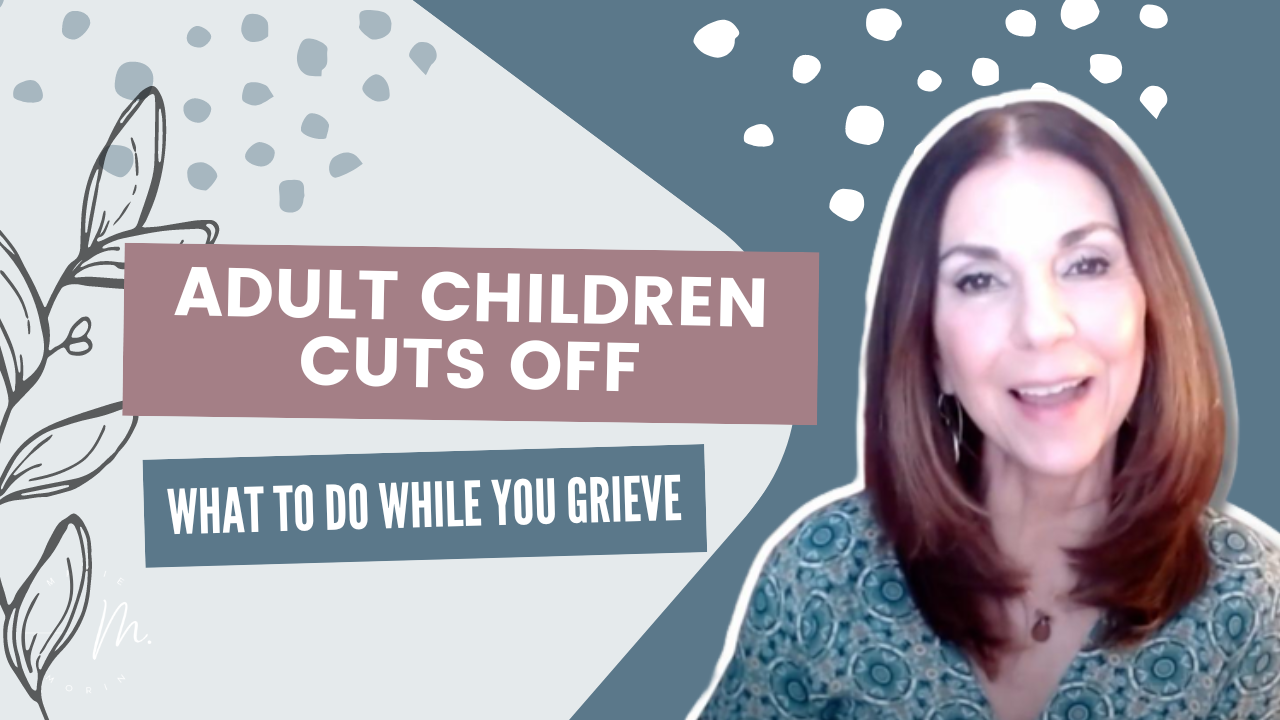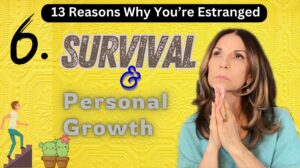Estrangement from adult children is a grueling experience. Parents grieve the loss of the relationship status with anxiety, anger, fear, guilt, and shock. Suffering comes in waves and is compounded by the uncertainty of when reconciliation will happen. Parents are among the twenty-seven percent of the population who are cut off from one or more family members—the widespread and stigmatized condition affects all parties.
Self-care, being informed, supporting, and ventilating are essential for managing tumultuous conditions. Parents benefit by learning communication skills and developing patience. This article discusses What to Do When Your Adult Child Cuts Off While You Grieve and Want to Reconcile.
What to Do When Your Adult Child Cuts Off
1. Self-care
Self-care is not about taking a day for yourself or going to a salon. Proper self-care is intentionally addressing your emotional and physical needs. Estrangement is highly taxing on your emotions and stress levels. Practices such as prayer, intentions, daily movement, eating well, staying hydrated, and relaxation exercises such as diaphragmatic breathing are ideal ways to nurture oneself.
Stress-reducing practices such as Diaphragmatic breathing, prayer, and intentions address the toll taken on your emotions. When you are estranged, your emotional and physiological states are heightened. The stress on your psychological state and emotions can wreak havoc on your well-being. When you are grieving, feeling anxious, and sad, practicing calming exercises to manage your stress response is essential. Spending time nurturing yourself will help you gain clarity and get through the relationship loss.
2. Be Informed
Reading books, following research, and listening to videos on estrangement will help you gain perspective during this challenging time. Read researched works and learn from the experts. The best current examples include Coleman, Pillemer’s, and Agllias’s books.
Dr. Joshua Coleman’s book Rules of Estrangement is an excellent work that enlarges the parent’s understanding of estrangement. Dr. Karl Pillemer’s book Fault Lines Fractured Families and How to Mend Them presents the family experience and how many estranged family members successfully reconciled. Researcher, educator, and social worker Kylie Agllias’s book Family Estrangement A Matter Of Perspective authored this highly informative work with a keen understanding of the varying perspectives of parents and adult children.
Informing yourself by learning from different experts will assist you in understanding that you are not alone. With 27% of the population estranged, your experience is not abnormal. Mastering knowledge about estrangement, hearing about other circumstances, and learning better ways to approach your condition will help you to move forward. Your study will also increase your understanding of the adult child’s perspective.
3. Get support
When you are grieving the loss of the relationship status of your adult child, it is common to want to isolate. It is important to get support and surround yourself with people who love and value you. Being sad, depressed, anxious, and fearful often fosters the desire to separate. When you are grieving, it is common to pull away from people.
Your best strategy is to remain in contact with those who are supportive.
Find a professional therapist who can come alongside you and guide you through processing your grief. Alternatively, you can find an estrangement support group to be around others who can relate to you.
4. Ventilate
Ventilation is the act of allowing yourself to purge safely emotionally. You can ventilate with those you feel safe with, such as a dear friend, therapist, or estrangement coach.
Ventilation discharges strong feelings so you can make sense of what is happening and release it.
Journaling is also an excellent way to expel feelings safely. There is no right or wrong way to journal. Allow yourself to write the contents of your hurt without holding back.
When you feel complete, do something different such as watching a movie, going for a walk, or taking a bath. Ventilation is an integral part of the process of moving forward.
5. Learn Communication Skills
Poor communication is a common theme in estranged relationships. No parent is perfect, but parents can habitually miscommunicate with their adult child. Adult children separate from their parents for a variety of reasons. Your adult child has likely felt invalidated when there has been a strained relationship. Learning critical communication skills is essential for preparing for potential encounters with your estranged adult child.
Skillful communication includes knowing how words are spoken, what not to say, the tone in which you speak. When we have close relationships with someone, we listen to and validate them. We may disagree with what they say but respect them and validate their feelings. Validation is how we communicate to someone that we understand their perspective. They feel they are heard and understood. Learning critical communication skills will prepare you for likely encounters with your adult child. Adult children who consider reconciling look for their parents to change; they seek evidence that the old behaviors have ceased—parents who hope to reconcile benefit when they learn communication skills.
Estranged Adult Children Understanding Why They Cut Off (Part 1)
6. Practice Patience
The most challenging aspect of the estrangement condition is the uncertainty of what will happen with the relationship. Parents ask, “Will I ever see my adult child again?” It is normal to be anxious and hope for a quick resolution. Patience is an intentional practice of waiting with purposeful ease. Undoubtedly challenging to practice, however, daily surrender to do the best you can each day, and your best is enough. The average length of estrangement is four- and one-half years. Unfortunately, there is no quick remedy to relieve the grief you experience.
You can expect that your estrangement condition will be filled with uncertainty. You will feel the waves of grief. However, taking each day at a time will support you long-term. Tension is guaranteed when you lose the relationship status. Think about acquiring thick skin. Consider a thick skin as you gain strength to endure and prepare for a new relationship with your adult child at some point.
Estrangement is extremely painful and challenging. Parents grieve the loss of the relationship status with their adult child. Parents benefit by intentionally processing feelings of grief and practicing self-care, safely ventilating, being informed, and getting support. Communication skills and practicing patience prepare parents for the possible meeting with their adult child and the uncertain length of the estrangement. This article discusses What to Do When Your Adult Child Cuts Off While You Grieve and Want to Reconcile.
Resources:
Agllias, Kylie. Family Estrangement A Matter Of Perspective. New York, Routledge, 2017.
Coleman, Joshua. Rules of Estrangement. New York, Harmony Books, 2020.
Morin, Marie. Feeling Heartbroken and Alone? How to Pick Up the Pieces When You are Estranged. eBook. 2022.
Morin, M.L. [Morin Holistic Therapy]. (2022, January 4 ). What is Family Estrangement? You Are Not Alone.
Morin, M.L. [Morin Holistic Therapy]. (2021, September 8). Diaphragmatic Breathing: 5-Minute Deep Breathing Exercise for Beginners.
Morin, Marie. How to Deal with Estranged Family During the Holidays (2021, November 21) Sixty and Me. https://sixtyandme.com/estranged-family-holidays/
Pillemer, Karl. Fault Lines Fractured Families and How to Mend Them. New York Penguin Random House, 2020.






